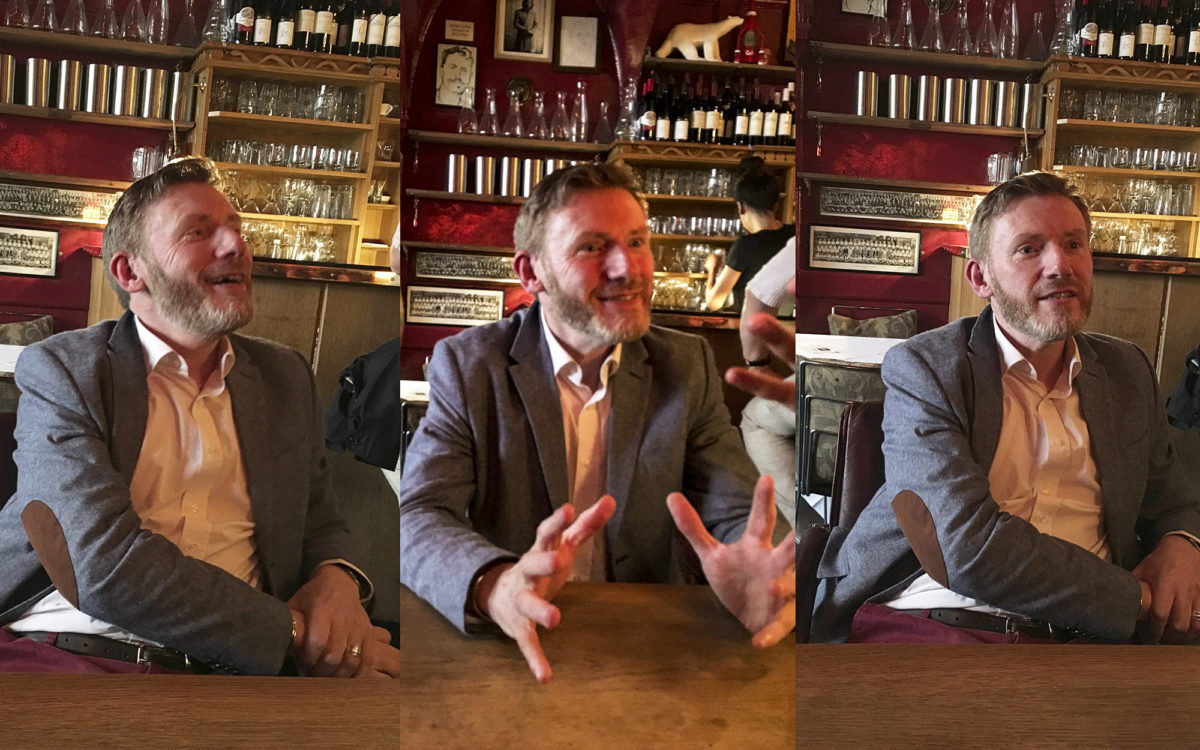Huw Arfon Williams was born in 1959, and came to London in 1983. We meet him to discuss gay London from the 80s onwards, in a stylish members’ club in Soho. It’s a fitting place to meet Huw, who is a stylish man, but when he declares that the sartorial choices he made in the ‘80s were based on vanity rather than political allegiance, he diverts attention from his political and sharply intelligent take on the history of the area.
Style, sex and politics stitch the stories of Huw’s life together. Huw was 24 when he arrived on the King’s Cross scene, and quickly became involved in an informal activist and political theory group, Gay Young Socialists. He describes the group as a place where young gay men were coming together and embracing politics as a way to express their new found confidence. It was a heady mix of political and sexual awakening. From Gay Young Socialists, he became involved in Lesbians and Gays Support the Miners, and to the surprise of his flatmate Gregory, regularly hosted striking miners in their flat in Canonbury.
Huw sketches an intimate picture of the driving social and political forces that dominated the lives of a countercultural subset of lesbians and gay men in King’s Cross in the 1980s and 90s. He brings us up to the present day, through the gentrification of the area, with a portrait of gay couples shopping in Waitrose. Pulsing in the background of his story are the changing rhythms of the time: from the indie music that was filling The Bell on a Sunday night at Movements, through to the early house that was coming in through the warehouse party scene across York Way.
Despite falling somewhat out of love with The Bell towards the end of it’s incarnation as a gay pub, the resonances of the time he spent there are still strong presences in his life: it was there that he met his husband, “both high on ecstacy, on the dancefloor… an ecstacy marriage that has lasted 30 years”.
